These 10 electric cars charge the fastest
Breaking down on the side of the road with an empty battery or being stuck at charging stations for hours: worries that are repeatedly mentioned when it comes to electromobility. The fact that the ranges of modern e-cars have now almost reached the level of combustion engines and that some need little more than a coffee break to fully charge is shown in our overview of electric cars with the highest charging capacities.
1. Porsche Taycan Turbo S
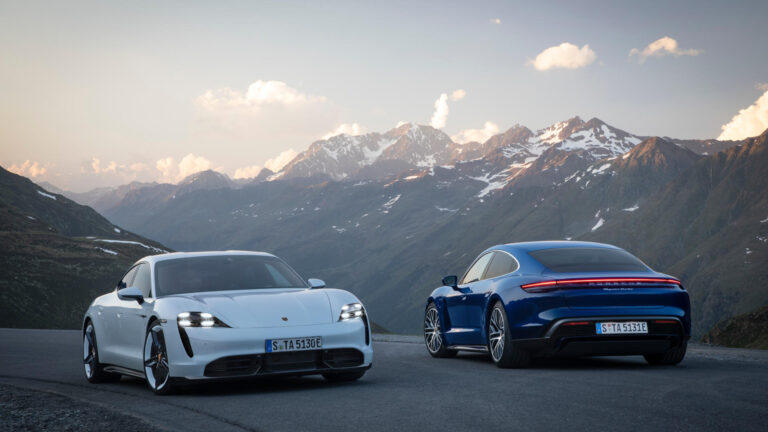
Porsche's first electric Taycan, which shares the technology with the Audi E-Tron GT, establishes an entire model family with various drive variants such as rear-wheel drive or 4×4 and different battery sizes. And as if that weren't enough, the Taycan is also available in three body styles: Coupé, Cross Turismo and Sport Turismo. The latter two station wagon versions are the same length, but slightly higher than the normal four-door and offer more storage space thanks to the folding rear seat. No matter which variant you choose: Thanks to its 800-volt charging architecture, each Taycan currently offers what is probably the best fast-charging capabilities up to a maximum of 270 kilowatts in the top versions, which means that the large battery is recharged for the onward journey in just over 20 minutes.
- Price from CHF 225'300.-
- Drive: All-wheel drive, 460 kW/625 hp
- Trunk: 366 liters (rear) / 84 liters (front)
- Consumption: 24.0 kWh/100 km
- Battery capacity: 71 kWh (net)
- Range WLTP: 440 – 468 km
- Maximum charging power: 270 kW
- DC charging time 10 – 80%: 17 minutes
- Total emissions (at 200,000 km): approx. 44.0 t CO₂
- Cost/year (for 15,000 km): approx. CHF 33,997
2. Audi E-Tron GT Quattro
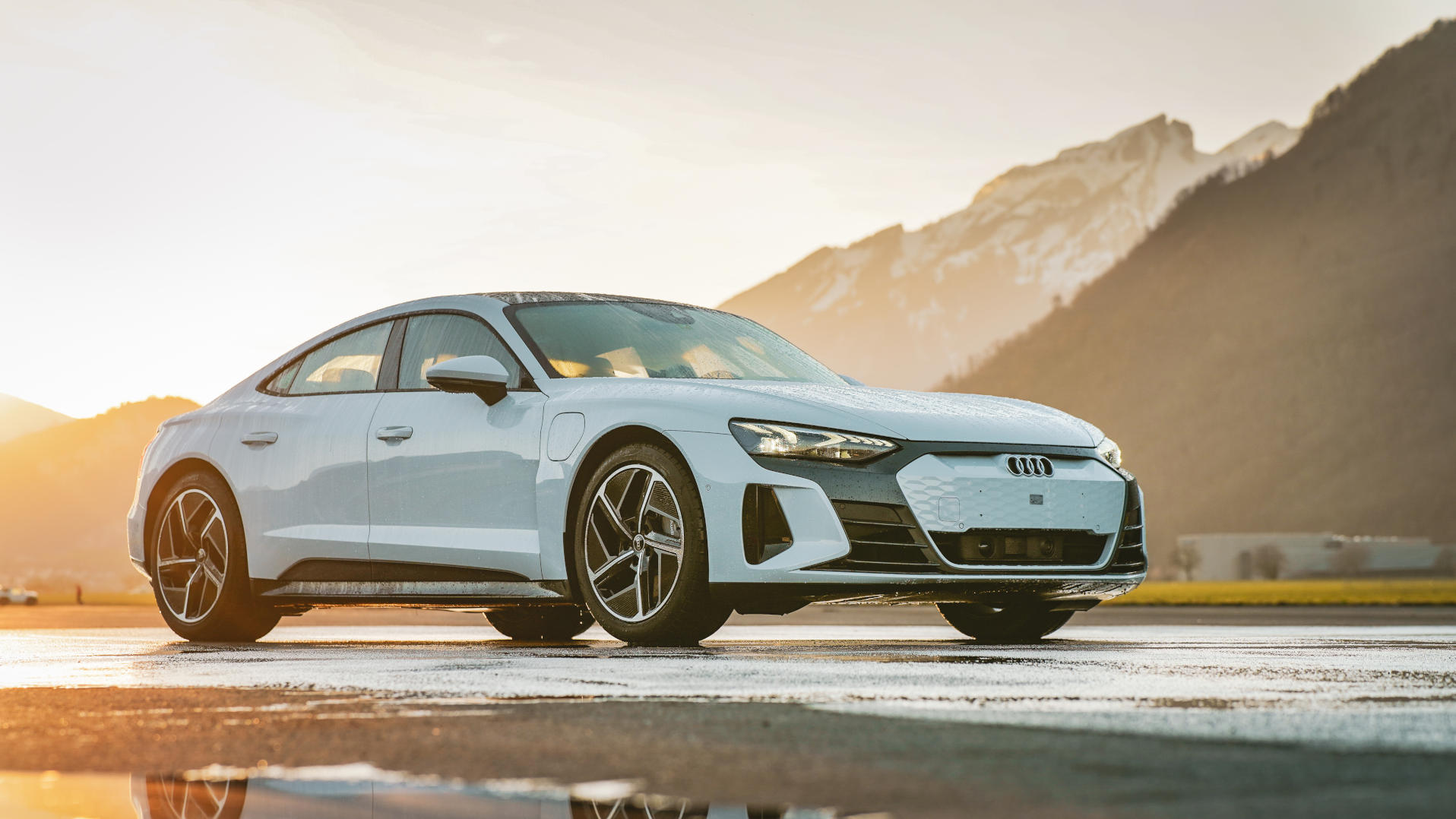
Presented at the beginning of 2021, Audi's almost five-meter-long luxury sedan is still at the forefront of electric cars, and not only visually. The E-Tron GT, developed together with the Porsche Taycan, has it thick under the lightweight body and heaves 530 hp, in the RS top version even up to 646 hp on the four drive wheels. In contrast to its technology brother, the GT is more of a smooth noble glider than a brute super electric car, but can also handle rapid cornering at the command of the accelerator – thanks to standard air suspension and all-wheel steering. And battery and charging technology in the E-Tron GT also continue to play in the upper league of electromobility: Audi's super electric car can travel almost 500 kilometers before it recharges at the fast charger with a maximum of 270 kilowatts.
- Price from CHF 111'550.-
- Drive: all-wheel drive, 350 kW/476 hp
- Trunk: 490 liters
- Consumption: 20.1 kWh/100 km
- Battery capacity: 83.7 kWh (net)
- Range WLTP: 492 km
- Maximum charging power: 270 kW
- DC charging time 10 – 80%: 22.5 minutes
- Total emissions (at 200,000 km): approx. 37.7 t CO₂
- Cost/year (for 15,000 km): approx. CHF 18,548
3. Tesla Model 3 Long Range
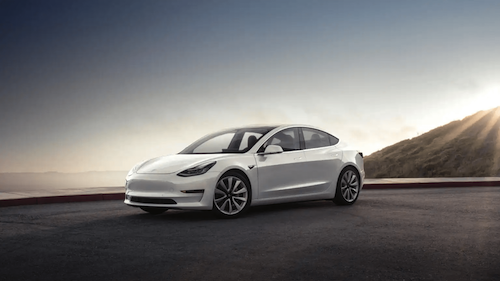
In just a few years, Tesla has established itself as THE electric brand. In 2022, the Model Y compact SUV was the best-selling car in Switzerland, and a year earlier, the Model 3 sedan had already secured the coveted title. In the "Long Range" version, the Model 3 has a range of over 600 kilometers and charges with up to 250 kilowatts on the DC fast charger – as fast as the other available models S, X and Y. If you exhaust the 513 hp of the top version of the Model 3, you can shoot up to 100 km/h in 3.3 seconds and make many sports cars look old. Since the price was recently lowered against the trend in the rest of the market, the electric competition is likely to continue to cut its teeth on the US electric car in 2023.
- Price from CHF 53'990.-
- Drive: all-wheel drive, 366 kW/498 hp
- Trunk: 340 liters (rear) / 85 liters (front)
- Consumption: 14.7 kWh/100 km
- Battery capacity: 75 kWh (net)
- Range WLTP: 602 km
- Maximum charging power: 250 kW
- DC charging time 10 – 80%: 27 minutes
- Total emissions (at 200,000 km): approx. 31.2 t CO₂
- Cost/year (for 15,000 km): approx. CHF 11,242
4. Kia EV6 (77.4 kWh)
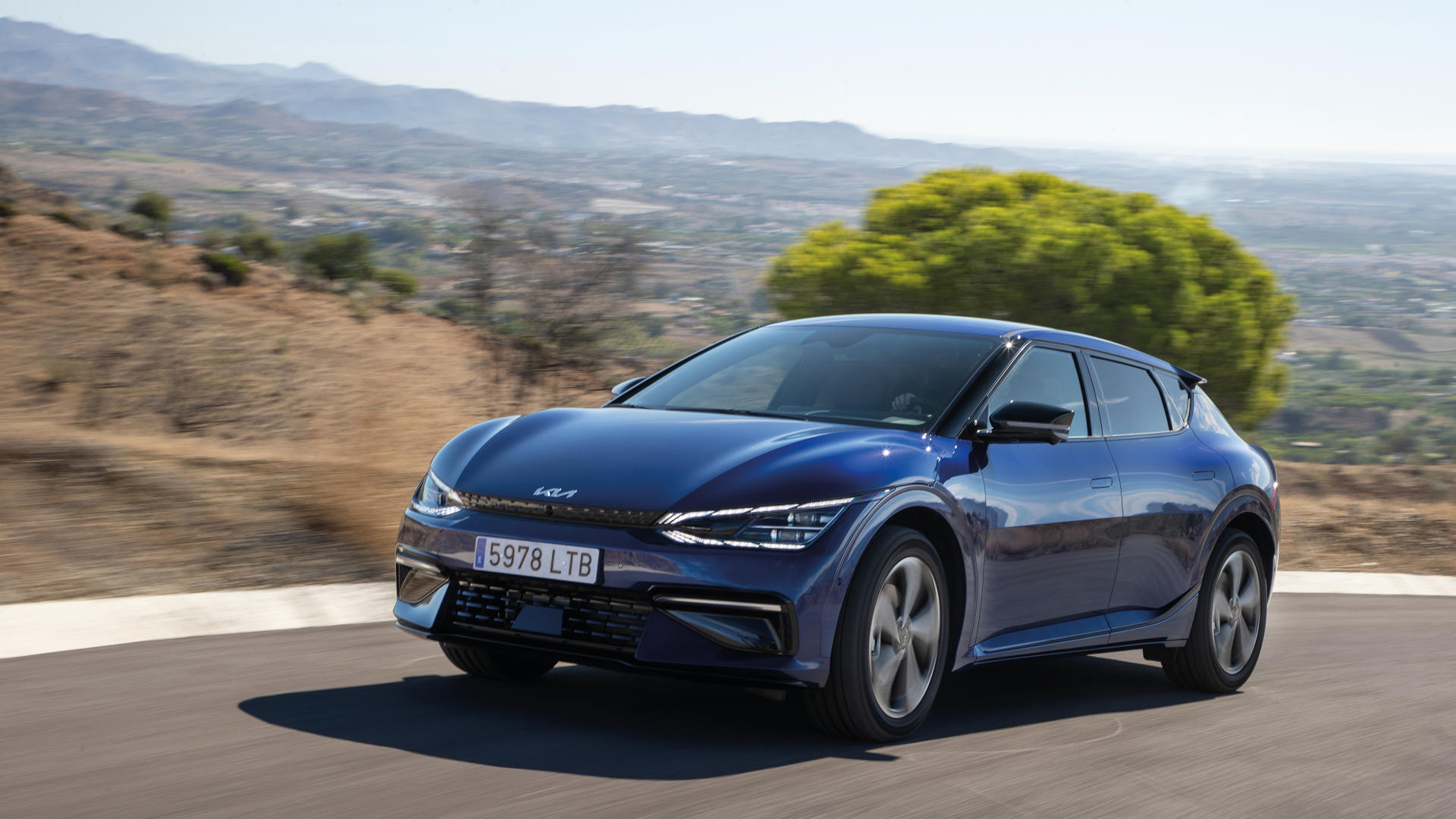
In total, customers can choose between four versions of the Kia EV6: Two of the electric SUVs come with rear-wheel drive, two with all-wheel drive. As fast as the top version accelerates to 100 km/h in just 5.2 seconds, the battery of the electric car can be refilled at the fast charging station. Thanks to its high charging capacity of up to 240 kilowatts, the EV6 is already 80 percent charged again after 18 minutes – depending on the model, a maximum range of over 500 kilometers is possible. By the way, the Kia can even supply external devices, from coffee machines to e-bikes, with power – made possible by the bidirectional charging function.
- Price from CHF 59'100.-
- Drive: rear, 168 kW/229 hp
- Trunk: 490 – 1,300 liters
- Consumption: 16.5 kWh/100 km
- Battery capacity: 77.4 kWh (net)
- Range WLTP: 528 km
- Maximum charging power: 240 kW
- DC charging time 10 – 80%: 18 minutes
- Total emissions (at 200,000 km): approx. 37.7 t CO₂
- Cost/year (for 15,000 km): approx. CHF 11,506
5. Genesis GV60
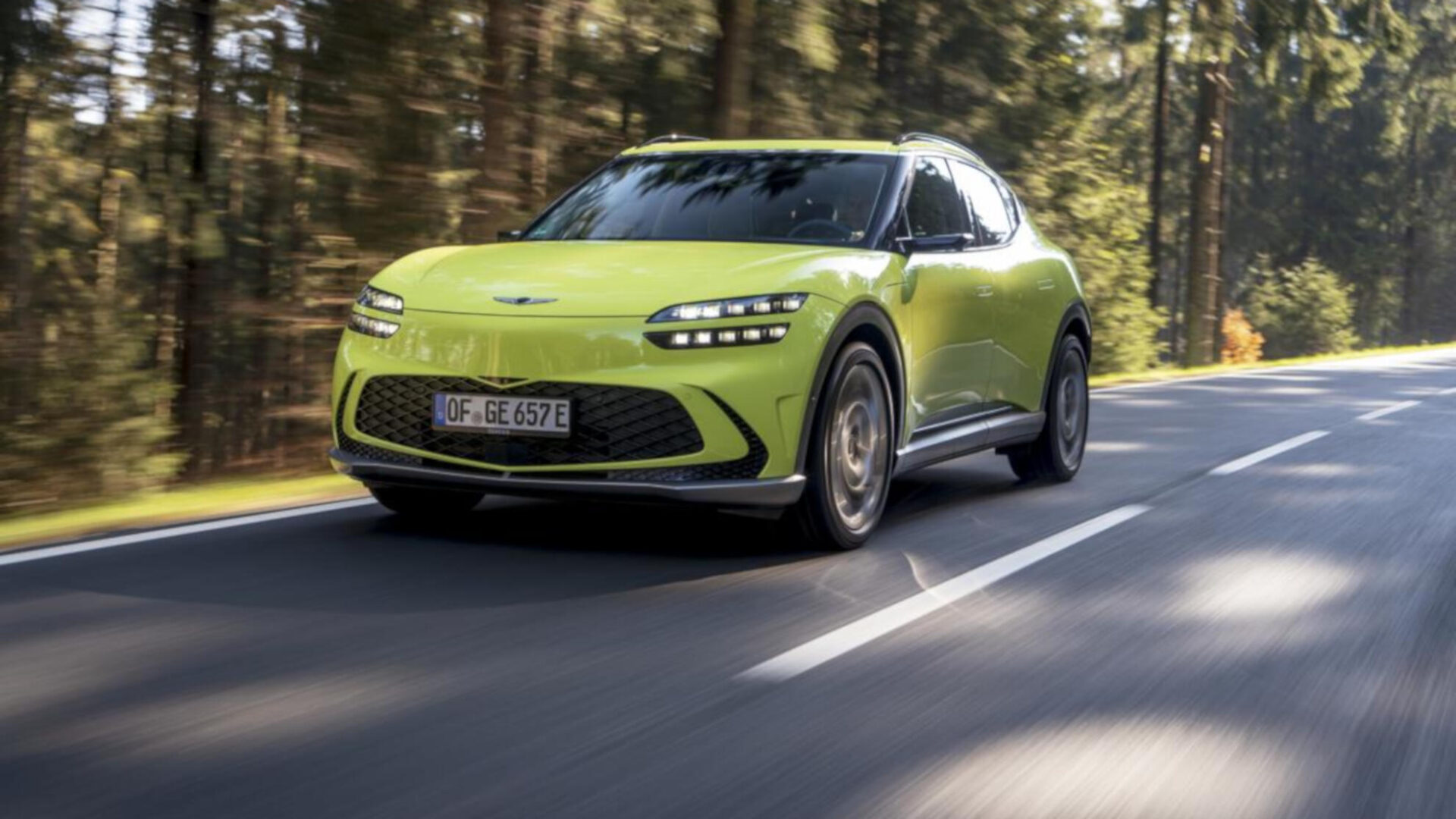
Even though it had to give way to its brand brothers Hyundai Ioniq 5 and Kia EV6, the GV60 from the noble brand Genesis took off rapidly: Only launched in the summer of 2022, the chicly designed crossover was able to secure the title of "Swiss Car of the Year 2023" just a few months later. And it's anything but undeserved: Inside, the compact electric car boasts high-tech features such as cameras and screens instead of exterior mirrors and a dignified luxury ambience. The highlight, however, is the drive: The electric motors of the all-wheel drive top version weigh up to 490 hp onto the rubbers, with even the rear-wheel drive basic GV60 already being sporty. Once the large battery in the underbody has run empty – at best only after more than 500 kilometres – the GV60 at the fast charger leaves its owner hardly any time to use the break for a coffee: Thanks to 800-volt technology, the compact electric car fills its batteries back to 80 percent in 18 minutes.
- Price from CHF 59'900.-
- Drive: rear, 168 kW/229 hp
- Trunk: 432 – 1,550 liters
- Consumption: 17.0 kWh/100 km
- Battery capacity: 77.4 kWh (net)
- Range WLTP: 517 km
- Maximum charging power: 240 kW
- DC charging time 10 – 80%: 18 minutes
- Total emissions (at 200,000 km): approx. 38.2 t CO₂
- Cost/year (for 15,000 km): approx. CHF 11,285
6. Hyundai Ioniq 5 (77.4 kWh)
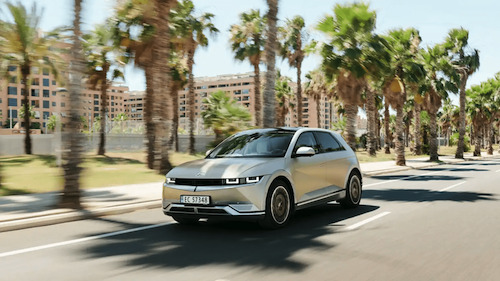
The Ioniq 5 is an absolute eye-catcher and, like the identical Kia EV6, offers an extremely wide range of drives: There are two different versions with all-wheel drive and rear-wheel drive with a power range between 125 kW/170 hp and 239 kW/325 hp. Electronically always limited to 185 km/h, the Ioniq 5 reaches the 100 mark from a standstill in 5.2 seconds at best. There are also two battery options with 58 or 72.6 kWh, which should allow ranges of over 500 kilometres. Like its technology brother Kia EV6, the Ioniq 5 also refuels rapidly with up to 220 kilowatts on the DC fast charger - so the batteries are 80 percent full again in less than 20 minutes.
- Price from CHF 52'900.-
- Drive: rear, 168 kW/229 hp
- Trunk: 527 – 1,587 liters
- Consumption: 18.0 kWh/100 km
- Battery capacity: 77.4 kWh (net)
- Range WLTP: 476 km
- Maximum charging power: 220 kW
- DC charging time 10 – 80%: 18 minutes
- Total emissions (at 200,000 km): approx. 37.8 t CO₂
- Cost/year (for 15,000 km): approx. CHF 11,145
7. Mercedes EQS 450+
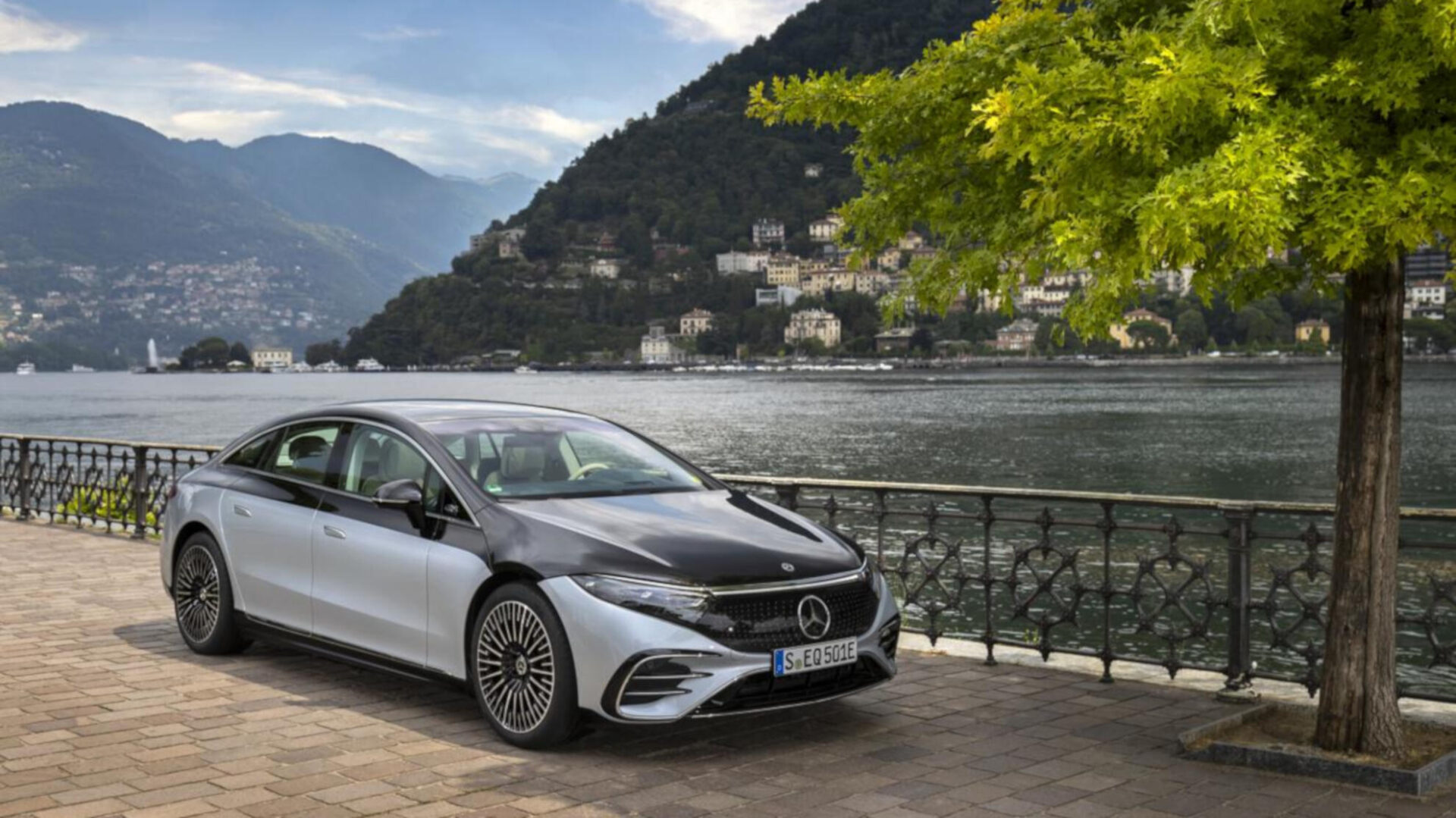
The S-Class is the absolute top model from Mercedes and the epitome of a luxury sedan. The Stuttgart-based carmaker has long been setting new standards in the electric sector as well, defining the S-Class of the future with the electric flagship EQS. The spacious five-seater with the star is not stingy with superlatives: The basic version with rear-wheel drive is said to have a range of up to 784 kilometres before the huge battery in the underbody refuels with a maximum of 200 kilowatts at the fast charger. As the top model AMG-EQS, the electric motors shovel up to 761 hp onto the drive axles and accelerate the 2.7-ton power colossus to 100 km/h in an insane 3.4 seconds. Its name: EQS SUV.
- Price from CHF 141'400.-
- Drive: rear, 245 kW/333 hp
- Trunk: 610 – 1,770 liters
- Consumption: 19.6 kWh/100 km
- Battery capacity: 108.4 kWh (net)
- Range WLTP: 629 km
- Maximum charging power: 200 kW
- DC charging time 10 – 80%: 31 minutes
- Total emissions (at 200,000 km): approx. 47.3 t CO₂
- Cost/year (for 15,000 km): approx. CHF 22,536
8. BMW iX xDrive50
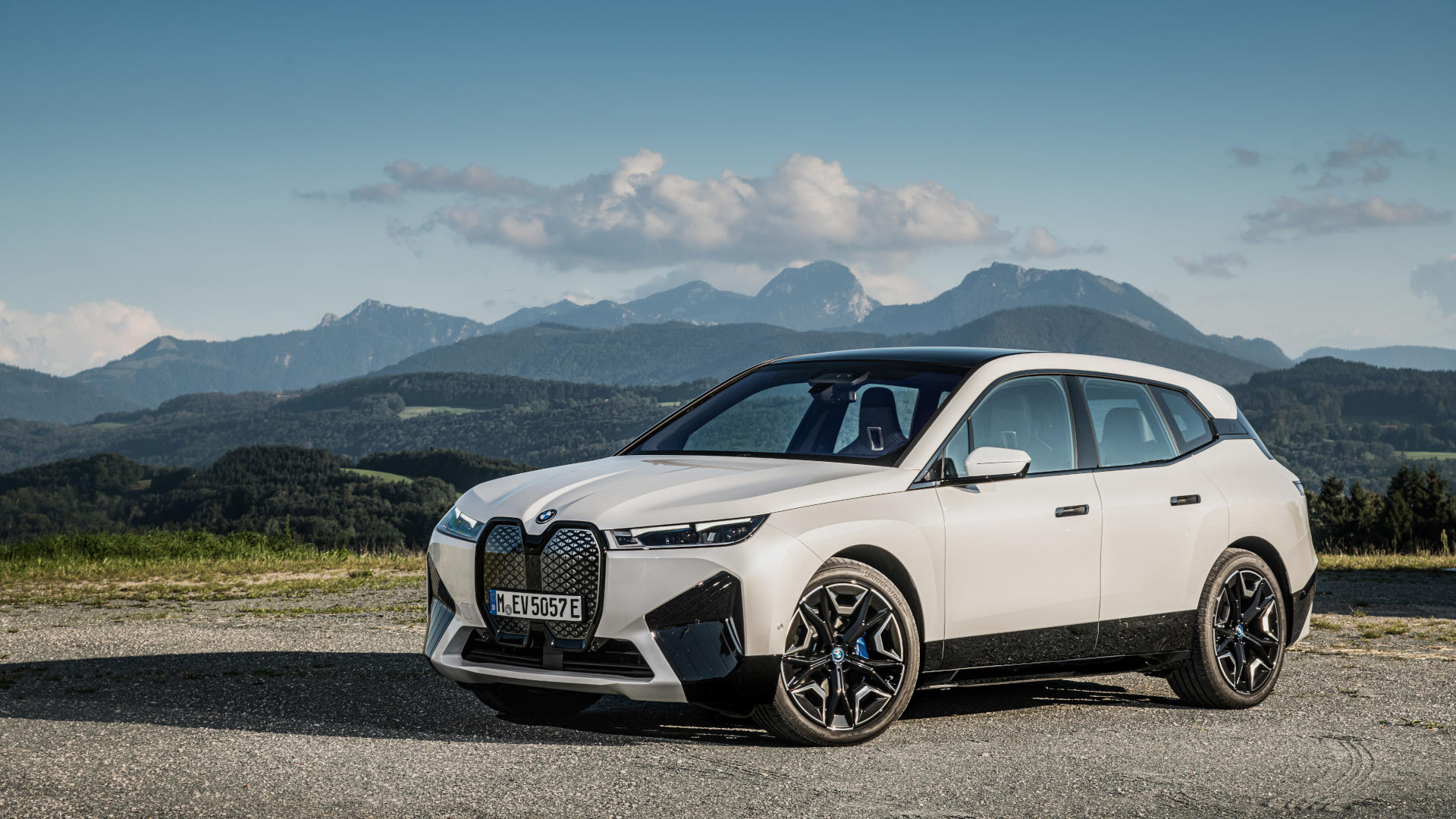
In 2013, BMW was an electric pioneer with the high-tech i3 electric car made of aluminum, carbon and a lot of recycled materials – but then rested for a long time. But with a whole fleet of electric vehicles – from the compact iX1 to the luxury cruiser i7 – the Munich-based company is now back at the forefront. The measure of electric SUV things is the iX: With rear-wheel or all-wheel drive, up to 619 hp in the top version M60 and generous space, as is to be expected in a luxury SUV.
The cockpit is particularly exciting for technology freaks: It is dominated by two huge curved screens – so you can also operate the infotainment by touch without dislocating your right arm.
- Price from CHF 121'300.-
- Drive: all-wheel drive, 385 kW/523 hp
- Trunk: 500 – 1,750 liters
- Consumption: 21.2 kWh/100 km
- Battery capacity: 105.2 kWh (net)
- Range WLTP: 590 km
- Maximum charging power: 195 kW
- DC charging time 10 – 80%: 35 minutes
- Total emissions (at 200,000 km): n/a
- Costs/year (at 15,000 km): n/a
9. VW ID. Buzz
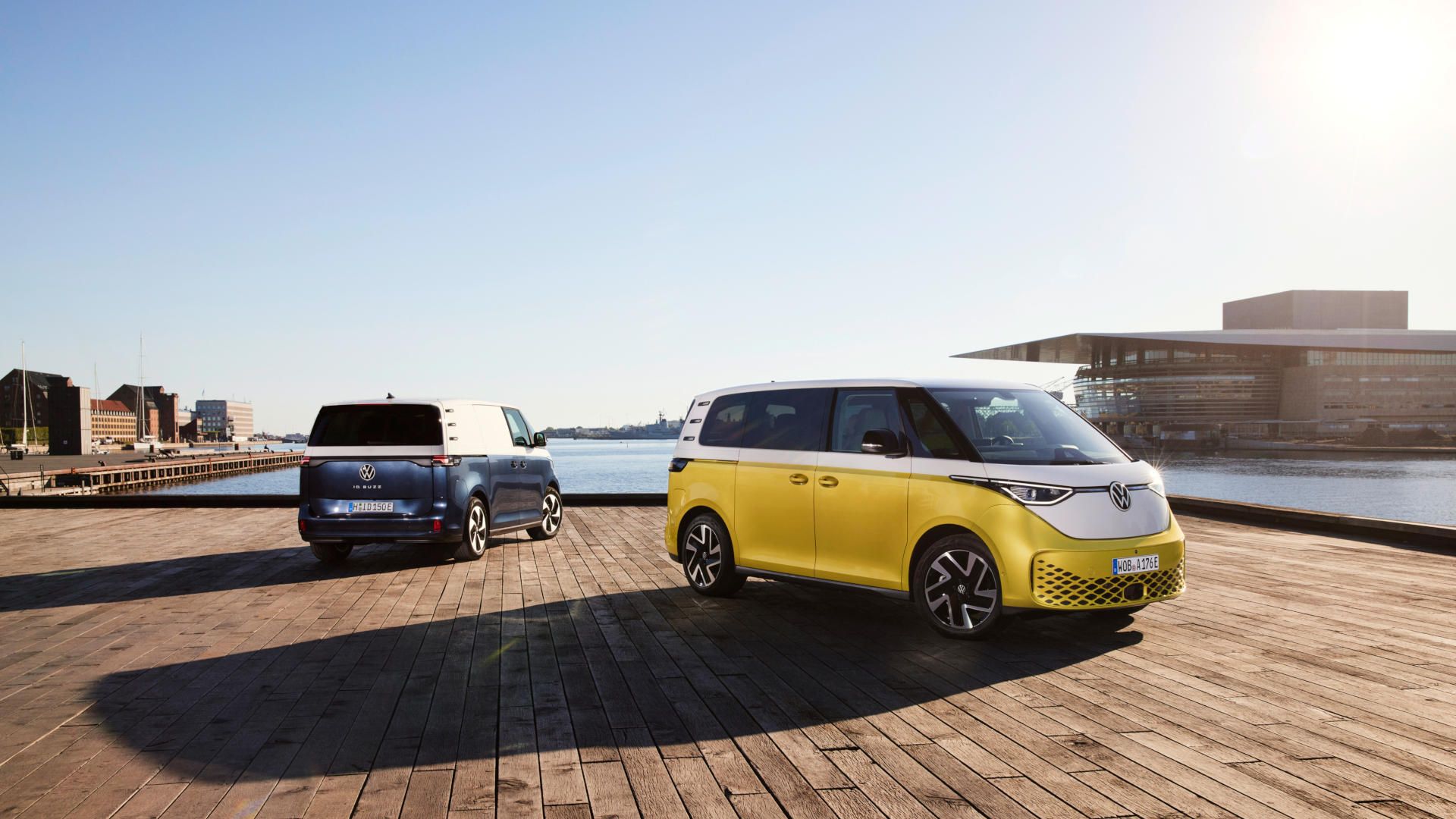
The ID. Buzz, which was launched in the fall of 2022, is based on VW's MEB electric toolkit, on which the group's other electric cars ID.3, ID.4 and ID.5 are already based. With its cool retro design, the electric van is reminiscent of the iconic VW buses of the 1950s and 60s. The five-seater van offers enormous space behind the electric sliding doors and should therefore also be interesting as a family transporter. The rear bench can be moved lengthwise by 15 centimetres and folded down – then there is over two cubic metres of load volume. With a normal driving style, you can cover around 350 kilometres; then it's off to the charging station. The ID. Buzz is the first VW electric car to withstand 170 kilowatts of charging power, which reduces the charging time from five to 80 percent battery capacity to 30 minutes. Currently, the ID. Buzz is also available as a commercial vehicle variant Cargo – a long-wheelbase version with seven seats is to follow in 2023.
- Price from CHF 67'860.-
- Drive: rear, 150 kW/204 hp
- Trunk: 1,121 – 2,205 liters
- Consumption: 24.6 kWh/100 km
- Battery capacity: 77 kWh (net)
- Range WLTP: 423 km
- Maximum charging power: 170 kW
- DC charging time 10 – 80%: 30 minutes
- Total emissions (at 200,000 km): 40.2 t CO₂
- Cost/year (for 15,000 km): approx. 13,493 CHF
10. Ford Mustang Mach-E Premium RWD
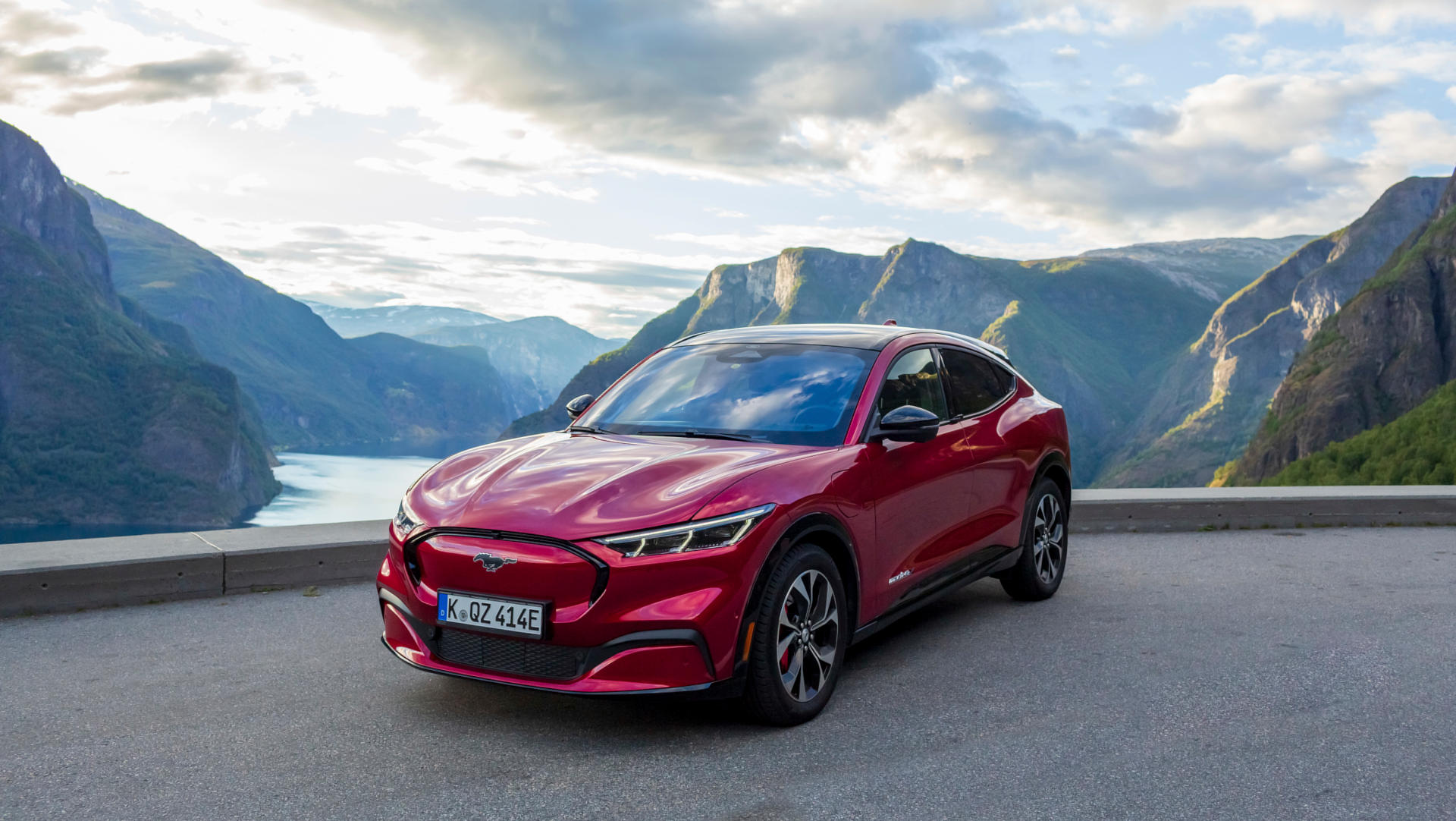
What do you need to successfully bring new technology to customers? The right logo! Fortunately, Ford already had this in its range when it designed the brand's first electric car. With the Mustang pony car, Ford electrified young car freaks in particular in 1964 - the Mustang Mach-E has been electrified since the summer of 2021.
Instead of a sports coupé, there is plenty of space in a crossover body – but the typical taillights in LED technology still blink in the rear. There is a choice of rear-wheel and all-wheel drive versions, two battery sizes with a range of 400 to 600 kilometres and the top-of-the-range GT version, which accelerates to 100 km/h in 3.7 seconds thanks to 487 hp.
- Price from CHF 66'600.-
- Drive: rear, 216 kW/294 hp
- Trunk: 402 – 1,420 liters
- Consumption: 17.3 kWh/100 km
- Battery capacity: 98.7 kWh (net)
- Range WLTP: 600 km
- Maximum charging power: 150 kW
- DC charging time 10 – 80%: 45 minutes
- Total emissions (at 200,000 km): approx. 40.0 t CO₂
- Cost/year (for 15,000 km): approx. CHF 12,333.-
Post a Comment for "These 10 electric cars charge the fastest"